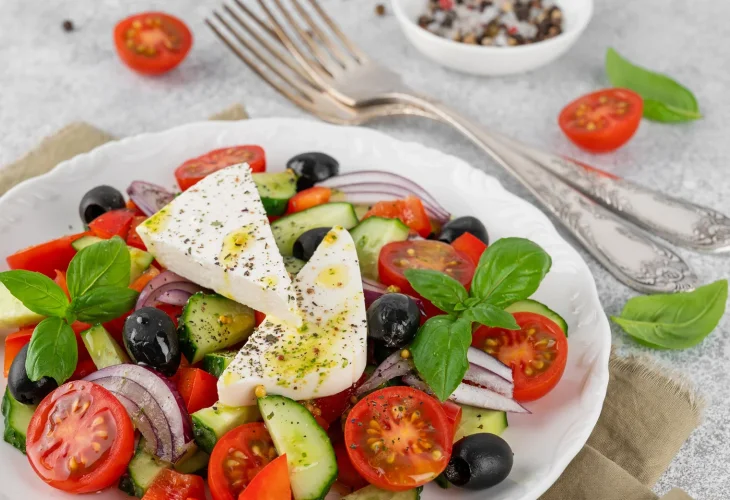Why the Mediterranean Diet Could Be Your Heart's Best Friend
Recent research shows that sticking to this diet might reduce your risk of heart events. Here's what you need to know and what to savor.
 (Photo: Shutterstock)
(Photo: Shutterstock)If you're living in the U.S. but have a soft spot for Mediterranean flavors, you're not alone. A recent study highlighted the benefits of a Mediterranean diet on your health.
Findings published by dietitians Natalie Shemesh and Roni Hasson for the Physicians for Nutrition Organization on the N12 website, summarize four major clinical studies involving over ten thousand participants.
The findings, among other things, point to a 48% lower chance of experiencing heart events, a 38% reduced risk of heart attacks, and a 37% lower chance of suffering from strokes.
Shemesh and Hasson explain, "Many believe the Mediterranean diet revolves around olive oil, but while olive oil is part of this diet, it actually includes a wide variety of whole plant-based foods. The foundation consists of several food groups, chiefly whole plant foods like: vegetables, fruits, whole grains, legumes, nuts, and seeds." They clarify that the Mediterranean diet is more of a pattern than a strict list.
"This diet isn't low-fat or low-carb. It's about the type of fat and carbs, not the quantity," add Shemesh and Hasson. "It emphasizes choosing monounsaturated and polyunsaturated fats like olive oil, avocado, nuts, seeds, and tahini made from whole sesame; while minimizing fats from butter, margarine, and fatty meats. The carbs come from whole foods like: whole grains, legumes, and fruits; not from sweets, snacks, and sugary drinks."
They also dispel myths, such as the need to drink wine to adopt a Mediterranean diet. "This diet suits people of all ages—from youth to later life. In fact, it's never too late to make dietary changes and improve health," they state in the article. "Thus, adopting a Mediterranean diet from an early age can greatly aid in maintaining current health and prevent future ailments."
So, what should you eat? First off, they recommend "choosing simple recipes that require minimal prep or match your ability to invest time, like salad meals, stir-fries, one-pot dishes, poke bowls with various ingredients, or oven trays like antipasti. Use quick-prep foods such as pre-packaged cut vegetables, cherry tomatoes, frozen or canned vegetables and legumes."
In summary, they write, "Besides the health boost, the Mediterranean diet offers economic savings and environmental benefits. Raw foods like whole grains, legumes, seasonal fruits, and vegetables are relatively cheap, especially compared to eating out."

